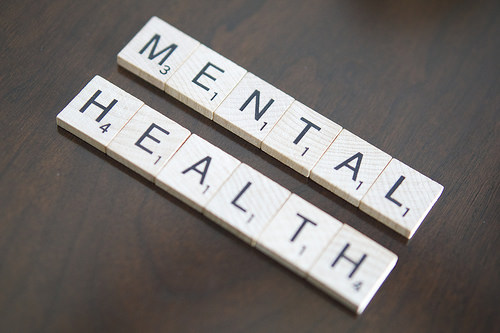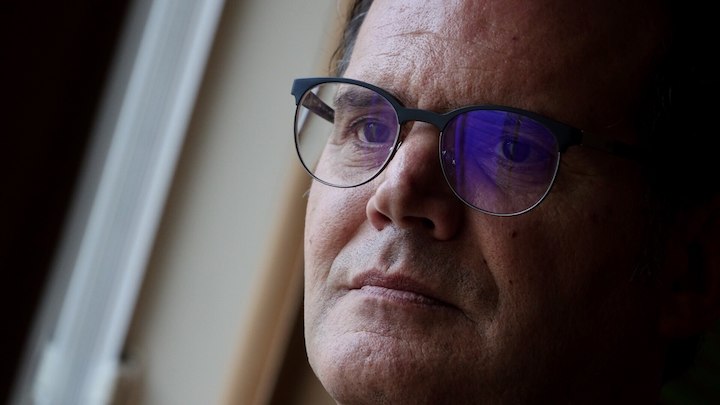
This week, my daughter asked if she could use me for an assignment on mental health. She is in the middle of a Master’s degree in Science, so I thought this might be a good time to write about something I have never disclosed publically. I do this not to draw more attention to myself – I have no interest in that. I have decided to put this out with the hope that it might help someone and that I can contribute to the conversation on mental health that is currently going on here in Canada. The assignment questions and answers are all part of this post.
Hope it helps.
Can you talk briefly about your diagnosis?
Yes, the diagnosis was reached 8 years ago and it was characterized as ‘pure obsessive-compulsive disorder’ – a clinical anxiety disorder. Pure, in the sense that this form of OCD did not come with any form of compulsive actions like washing hands, checking to make sure doors are locked, excessive cleanliness etc. Pure OCD is characterized more by obsessive or intrusive thoughts.
Growing up, what did you know about mental illness? How was mental illness seen by the society at large? How was it seen by those close to you?
Growing up I knew nothing about the condition. I am pretty sure my mother suffered from some form of the disorder, but she never received treatment. In fact, until 8 years ago, I knew little about the condition. I went through 20 years where the condition was undiagnosed. It tended to flare up during the summer and at Christmas when I wasn’t as busy at work. It first presented itself around the time I started working full-time at 27. It was a preexisting condition which I think was aggravated by stress and I worked in a very stressful environment as a high school teacher.
How is mental illness seen by the public?
That is a huge question. I think there is still a huge amount of stigma surrounding mental illness and that the whole topic is somewhat of a taboo where those that suffer are somehow seen as weak. This has led me to keep my condition largely a secret, which really is not helpful for others that suffer from some form of mental illness. I believe there is very little understanding of mental illness amongst the general public and educators are no better informed than the general public.
I am reminded of a time where I actually disclosed my condition to a supervisor explaining that undue stress could trigger a relapse of the condition. The supervisor discounted the information entirely. I still feel like I have a responsibility to address this situation with this individual at some point. A lack of empathy when it comes to mental health issues is simply not acceptable, especially when a person is responsible for others in the workplace.
Other supervisors told me when I was in the midst of a particular mental health crisis that they didn’t want to know anything about it. Unfortunately even loved ones encouraged me to ‘get over it’ or concluded that this condition would just ‘remain’ and I should get used to living a diminished existence. I am happy to say, that at least with my family, there has been a great change in attitude as they have learned along with me.
Generally speaking, people don’t understand anxiety and other forms of mental illness and I do believe that people are threatened by these discussions. I have a great amount of respect for Canadians like Clara Hughes who has been so open about talking about her mental health issues.
In class, we sometimes talk about mental illness as a form of disability. People are disabled by their environment because our world was structured for those without limitations. Have you ever seen yourself as having a disability?
Yes, I do have a disability. Mental Health becomes an issue for people when it gets in the way of normal functioning. This was the case for me for over 20 years. For people with OCD, it has been typical that the condition goes undiagnosed for as long as 20 years. Diagnosis and treatment make a huge difference and it is a tragedy that people have gone so long suffering, in fact, in silence. My hope that writing about the condition will help more people to seek help earlier and that everyone begins to see that mental health is something that needs to be talked about and understood, especially by people who manage others in the workplace.
Can you talk about your experiences with health professionals? Could the health professionals you encountered done anything differently?
Things changed for me because of some wonderful practitioners at the Ottawa Hospital and a close friend who is a psychiatrist at the same hospital. I received excellent treatment there, but I would never have received this help if it wasn’t for the intervention of my friend. This is one of the terrible facts about mental health in Canada. It is very difficult to access really good care. I find that many people are unable to access the care that they desperately need. Psychological assistance is very expensive and generally available only to those who have health coverage. For people without connections, the waiting list to see a psychiatrist can be very long. I am so fortunate to have had the resources to access the excellent care I have received.
It is also true that many practitioners do not understand anxiety very well. My family doctor was not helpful and prescribed an anxiety medication that led to serious addiction issues. One therapist I saw for a long period of time actually made things worse for me and gave me no warning about the very negative effects of the medications I was taking. The road to recovery was littered with many false starts and lack of understanding even from members of the medical community.
Has your experience with mental illness impacted the things that you do every day? (More specifically, in the workplace, in recreation, with family members)?
Yes, it has changed entirely how I look at life. It led me to learn much more about meditation and Buddhist philosophy – both which have altered the way I look at myself and others. I realize now that you can live with a mental health condition and that serious conditions can be treated very successfully. You do need an effective team working with you and the team does need to understand who they are dealing with.
Dealing with mental illness means that you have to look at your whole life and how you approach things. You need to learn to accept the help of others and in some cases, learn that taking medication plays an important role in keeping you healthy. I see all this as a good thing. I truly believe that we learn best when we are under pressure or even in crisis. We tend to ‘lean in’ and learn when we are in crisis. The alternative is seeking oblivion through drugs, alcohol and a whole variety of methods. This is a real danger in our society and one of the reasons why we need to understand addiction better and help those more effectively who are suffering. Again, as a society, we could do a much better job at this.
Do you believe that your experiences with mental illness has offered you a unique perspective?
Yes, totally. I don’t really regret the 20 years that I suffered from undiagnosed anxiety. I appreciate the help I have received and I have learned so much about myself. In some ways, I feel that I have been reborn by this experience especially now that I truly understand my condition and have learned to live with it successfully. I also believe that we are always learning about ourselves. To stop learning is to stop living and I deeply appreciate what I have gleaned over the past 8 years.
For you, what was the most effective form of treatment?
For me, it was a combination of cognitive behavioural therapy – talking therapy and in my case, medication. Sometimes medication is essential so the mind can get a chance to calm down enough to be able to accept the cognitive element of treatment. That is why it is important to have a team working for you – a psychologist to do the cognitive therapy working in tandem with a psychiatrist who can prescribe medication and monitor its effects.
Is there anything else you would like to add?
I would like to thank you for giving me the opportunity to write about all of this. This is something I probably could not have done even a few years ago, but I realize now that it is important to speak out to help those who are suffering on their own. I think it is also a measure of my own recovery that I am able to write about my mental health journey. I would also like to thank my family, friends and my wonderful medical team who has done so much for me over the past few years.


















